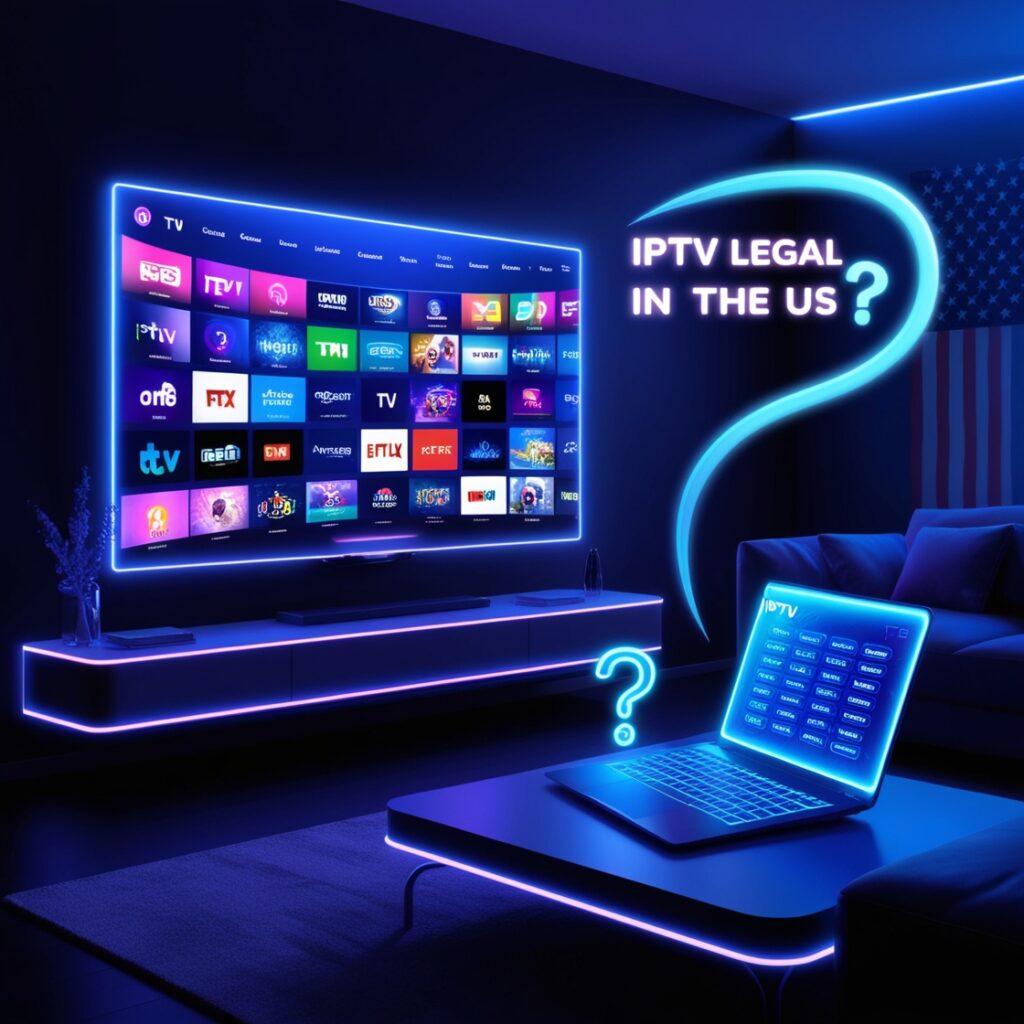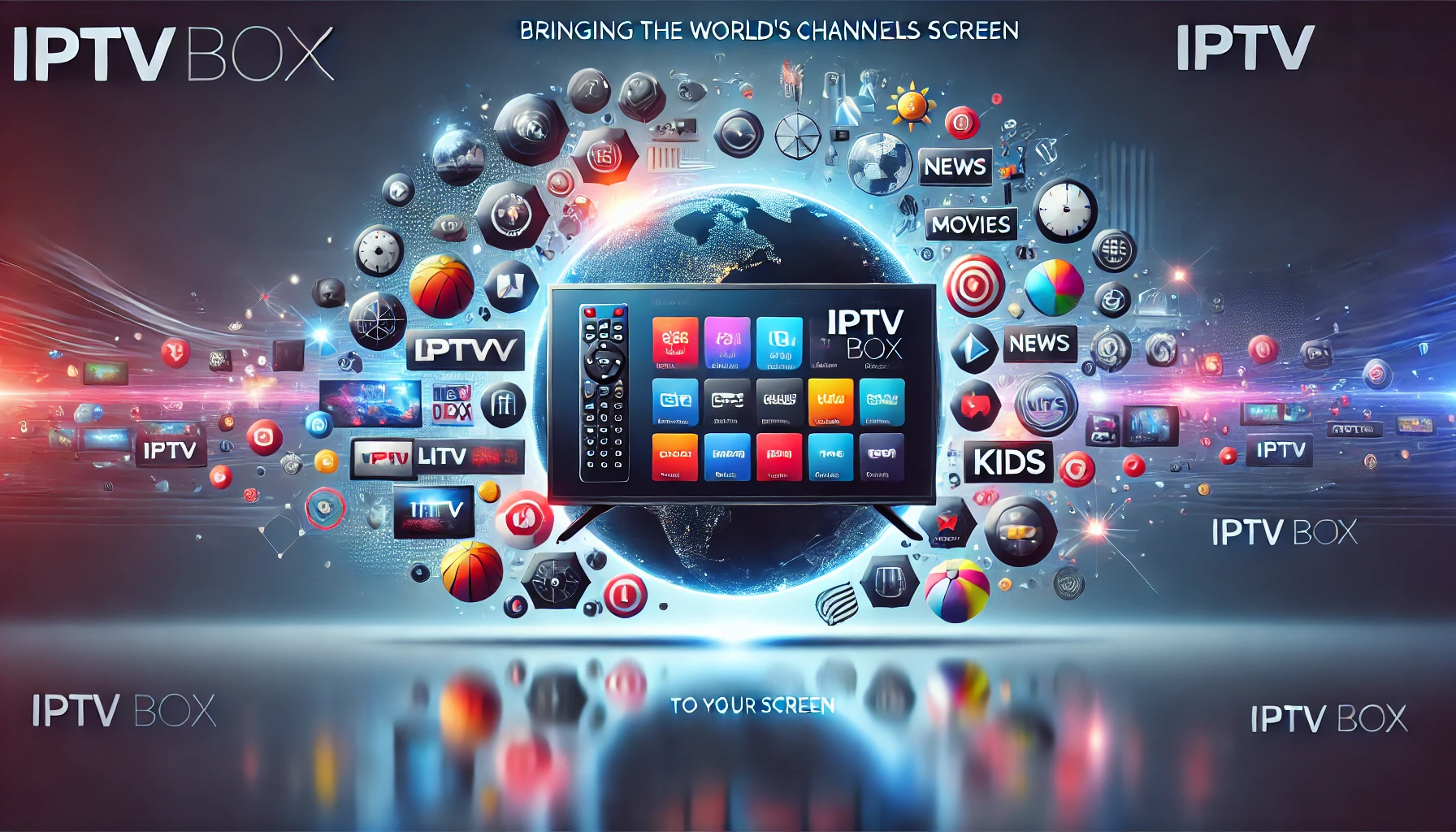
In recent years, Internet Protocol Television (IPTV) has become a popular way for people to watch television shows, movies, and sports events over the internet. IPTV allows users to stream content from a variety of sources, bypassing traditional cable or satellite TV services. However, the legality of IPTV services in the United States has been a subject of controversy, as many IPTV services operate in a grey area of the law. This article explores the legal aspects of IPTV in the United States, breaking down the key points into three main sections: the general legality of IPTV, the risks associated with illegal IPTV services, and the legal implications for users and service providers.
1. Understanding IPTV and Its Legality
IPTV refers to the delivery of television content over the internet rather than through traditional cable or satellite methods. It enables users to access live TV broadcasts, on-demand content, and even premium sports events via their internet connection. However, not all IPTV services are created equal. While some are completely legal, others may involve piracy and illegal distribution of copyrighted content.
1.1. Legal IPTV Services
Legal IPTV services in the United States typically operate under strict licenses, paying for the rights to broadcast content. These services may include major providers like Hulu + Live TV, Sling TV, YouTube TV, and fuboTV, all of which have contracts with content creators and distributors to legally stream shows, movies, and live broadcasts. These services are legal because they comply with U.S. copyright laws, which require content providers to secure permission from the copyright holders to distribute their material.
1.2. Illegal IPTV Services
On the other hand, there are IPTV services that distribute copyrighted content without authorization, often referred to as “pirate IPTV.” These services may offer access to live sports, pay-per-view events, movies, and TV shows without the proper licensing agreements. Many users are attracted to these services because they are often much cheaper than legal alternatives, offering access to premium content without the need for subscriptions to multiple platforms. However, accessing pirated content through illegal IPTV services can be risky for both users and providers, as it involves the infringement of intellectual property rights.
2. Legal Risks for Users of Pirate IPTV Services
While many people in the U.S. use illegal IPTV services unknowingly or simply because they are attracted to the low cost, it is essential to understand the potential legal consequences.
2.1. Copyright Infringement and Legal Action
In the United States, the unauthorized distribution or consumption of copyrighted content is illegal under the Digital Millennium Copyright Act (DMCA). Pirate IPTV services that offer unauthorized streaming of content are in violation of copyright laws, and users who access these services could be subject to legal action. Copyright holders, such as film studios, TV networks, and sports leagues, have the right to pursue legal action against both the providers of illegal IPTV services and the users who access them.
While it is rare for individual users to be prosecuted for simply using pirate IPTV services, there have been instances where users have faced penalties, especially if they are found to be reselling or distributing the pirated content. This can lead to hefty fines and legal fees. In 2019, U.S. authorities seized hundreds of illegal IPTV domains, signaling that enforcement against pirate IPTV services is an ongoing priority.
2.2. Security and Privacy Risks
Using illegal IPTV services not only exposes users to legal risks but also to security threats. Many pirate IPTV providers operate on unsecured platforms that may expose users to malware, phishing attacks, and identity theft. These services may require users to download suspicious software or provide personal information, which could be used maliciously.
Moreover, some illegal IPTV providers may track user activity and share or sell personal data to third parties. This makes using illegal IPTV services a potentially dangerous endeavor beyond just the legal implications. Users are advised to prioritize their security and consider the risks before resorting to pirate IPTV.
3. Legal Implications for IPTV Providers
While users face potential risks by accessing pirated content, IPTV providers are also at the center of the legal conversation. Offering unauthorized IPTV services can lead to serious legal consequences, including criminal charges.
3.1. Liability for Distributing Pirated Content
IPTV providers who offer unauthorized content face substantial legal risks. They could be held liable for copyright infringement, which may result in significant financial penalties, lawsuits, and the shutdown of their operations. The United States has stringent copyright laws, and courts have frequently ruled against individuals or companies that distribute pirated media.
A major issue for illegal IPTV providers is that they often host or distribute content that is copyrighted by major television networks, movie studios, or sports leagues. If these entities detect that their content is being distributed illegally, they can take legal action against the IPTV providers. As a result, many illegal IPTV providers operate in secrecy, hiding behind fake company names, offshore hosting services, or anonymous payment methods to avoid being detected by authorities.
3.2. Efforts to Combat Pirate IPTV Services
The U.S. government, along with various copyright enforcement agencies, has been actively cracking down on illegal IPTV services. In recent years, there have been numerous high-profile raids and takedowns of pirate IPTV operations. The government has also worked with ISPs to block access to pirate IPTV websites and domains, aiming to prevent the distribution of pirated content.
Several legal actions have been taken against IPTV providers who offer pirated content, including civil suits and criminal prosecution. The Department of Justice (DOJ) has even initiated criminal investigations into large-scale IPTV operations. Consequently, the legal risks for those involved in providing pirated IPTV services are significant and continuing to grow.
Conclusion
IPTV itself is not inherently illegal in the United States, but the legality largely depends on the service provider’s practices. Legal IPTV services, which operate under licensing agreements, are perfectly fine for users in the U.S., offering an alternative to traditional cable and satellite TV. However, pirate IPTV services that distribute copyrighted content without proper authorization are illegal and can result in severe legal consequences for both users and providers.
For users, it is essential to be cautious and ensure that they are subscribing to legitimate IPTV services to avoid the risks of legal action and security threats. Similarly, IPTV providers must adhere to copyright laws and ensure they have the necessary licenses to distribute content. As the legal landscape around IPTV continues to evolve, both users and providers should stay informed to avoid potential legal pitfalls and enjoy television content in a legal, safe, and secure manner.
